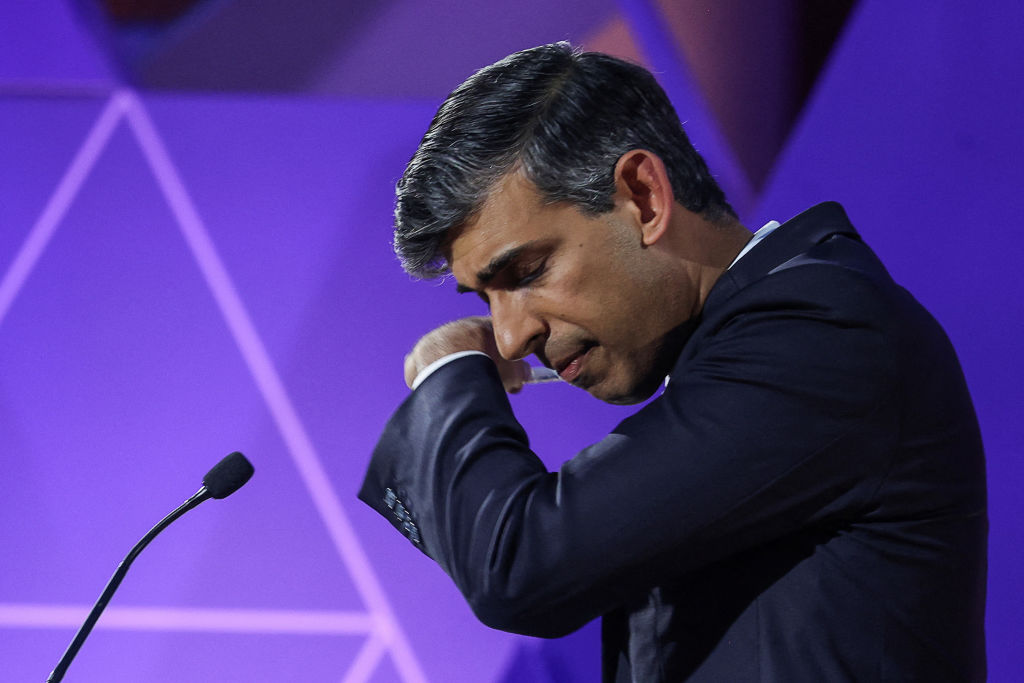The reality that the Tories have tried to deny and avoid for months has now hit. While exit polls are never perfect, the margins of error are small. It is now just a matter of waiting a few hours for the Tories’ worst defeat in history to play out.
Tonight’s projection, 131 seats, does not just mean defeat but humiliation. 1997, the horrid memory etched into many, now feels like a balm. There is no sugar-coating this now, it is the worst defeat for any party in living memory.
The voters who put the Tories in power five years ago have deserted them in droves. Some have gone Leftwards, backing Labour and the Lib Dems, others to the Right and Reform. Hundreds of thousands have simply stayed at home.
The result is defeat almost across the board. No demographic or geography is safe. The fabled Red Wall may never be spoken of again, but at the same time, true-blue Tory heartlands will have flipped. A Lib Dem wave will sweep through the Home Counties, while suburban and rural seats go Red.
This evening caps an ignominious end for the Tories. For nearly three years they have unravelled. First the scandals of Boris Johnson, then the calamity of Liz Truss, and finally the slow bleed of Rishi Sunak’s tenure. While they have tried to deny the direction of the polling, or hope for some salvation, nothing has been forthcoming. Now, there are no more excuses.
The rest of tonight will be painful for the party. Both fresh-faced candidates and seasoned veterans will be publicly met with the ire the party has earned. Seats with huge majorities will tumble; Cabinet veterans will be deposed. Not many will watch on with sympathy. Elections sometimes capture a mood — tonight is a distillation of anger against the Tories.
The failures of 14 years are now being cast out. Whether it’s the pain of austerity, anger at rising immigration, or frustration at stagnant wages and living standards, the Government has not been able to outrun the blame now. In their millions, voters across the country have moved to expel them. Only the safest seats seem to have escaped this tide.
Over the coming weeks there will be talk of post-mortems and rebuilding. Challengers will emerge to replace Sunak. They will each have their own views on what went wrong and how to fix it. In time, the electorate might learn to trust the party again — or else might see new predator parties pick more votes away.
Labour will face their own challenges. The one thing true of every government is that one day its popularity will falter. That will be far from their minds tonight, though, as a new bumper crop of MPs enjoy their victories. Politics is brutal: it’s right to luxuriate in the highs.
While that happens, the Conservatives must stew in mediocrity. The party failed to create winners from its tenure, beyond a narrow group of pensioners. It alienated parts of its base by spinning back and forth. Most of all, it failed to deliver or maintain the trust of the public. Tonight’s judgement is simple on one level — it is no longer fit to govern.
Those Tories who held out hope have now had it dashed. The rest is just details. It will be bad, and much of it deserved. Really, bearing the pain and understanding that will be perhaps the most vital part of the recovery process.











Join the discussion
Join like minded readers that support our journalism by becoming a paid subscriber
To join the discussion in the comments, become a paid subscriber.
Join like minded readers that support our journalism, read unlimited articles and enjoy other subscriber-only benefits.
Subscribe